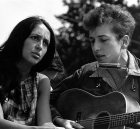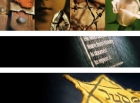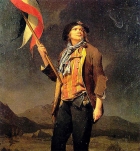KS3 planning (general)
There are many different issues, both practical and pedagogical, subject specific, school-wide and national that must be considered in any teachers’ planning. In this section you will find research, articles, guides and resources that will support you to develop your planning as it relates to teaching history and helping pupils to make progress.
Sort by:
Date (Newest first) | Title A-Z
Show:
All |
Articles |
Podcasts |
Multipage Articles
-

Cunning Plan 144: promoting independent student enquiry
ArticleClick to view -

Using ‘Assessment for Learning' to help students assume responsibility
ArticleClick to view -

Pupil-led historical enquiry: what might this actually be?
ArticleClick to view -

Understanding 'change and continuity' through colours and timelines
ArticleClick to view -

Getting Year 7 to vocalise responses to the murder of Thomas Becket
ArticleClick to view -

Seeing the historical world
ArticleClick to view -

Polychronicon 142: 'instructive reversals' - (re)interpreting the 1857 events in Northern India
ArticleClick to view -

Cunning Plan 142: Why do historical interpretations change over time?
ArticleClick to view -

Bob Dylan and the concept of evidence
ArticleClick to view -

Being historically rigorous with creativity
ArticleClick to view -

Dickens...Hardy...Jarvis?! A novel take on the Industrial Revolution
ArticleClick to view -

Counterfactual Reasoning: Comparing British and French History
ArticleClick to view -

Deconstructing lazy analogies in Year 9
ArticleClick to view -

Telling tales: Developing students' own thematic and synoptic understandings at Key Stage 3
ArticleClick to view -

Nutshell 129: Arguing the case for keeping history at Key Stage 3
ArticleClick to view -

Raising the bar: developing meaningful historical consciousness at Key Stage 3
ArticleClick to view -

Challenging not balancing: developing Year 7's grasp of historical argument through online discussion and a virtual book
ArticleClick to view -

Making pupils want to explain: using Movie Maker to foster thoroughness and self-monitoring
ArticleClick to view -

Into the Key Stage 3 history garden: choosing and planting your enquiry questions
ArticleClick to view -

Understanding Key Concepts: Diversity
ArticleClick to view

